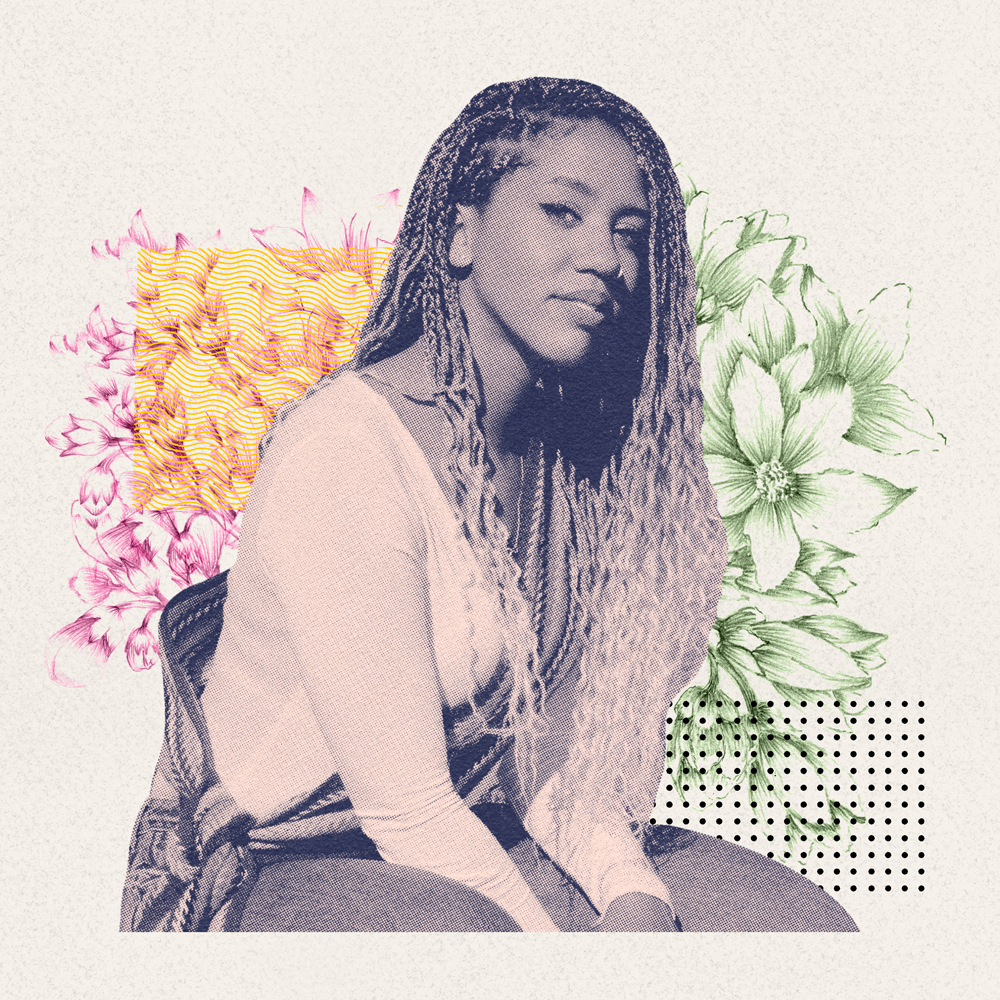Larissa Crawford: Racial justice is climate justice
Oxfam's mission is to fight inequality to end poverty and injustice, no matter where it takes place on the planet. Our feminist approach means that we tackle all the drivers of inequality to advance gender justice - which inherently means we must fight racism to achieve equality.
This year, Oxfam Canada is celebrating Black History Month in Canada by featuring the stories and reflections of Black Canadian women who are creating change in their communities by leading the fight against racism and oppression, each in different ways. The first part of the series is available here.

" Tackling racism requires us to tackle climate change. The root causes are one in the same."
When Larissa founded Future Ancestors, she knew she wanted to do things differently. Published Indigenous and anti-racism researcher, climate change activist and proud mother to Zyra, Larissa is driven by the healing power of coming to terms with one's generations past.
We spoke with Larissa about her passion for tackling climate change, anti-racism advocacy, and challenging the Western education system.
Listen to the full interview here:
Tell me a little bit about yourself.
I'm Larissa! I am currently based on Treaty 7, the traditional territory of the Blackfoot Confederacy, the Tsuu T'ina Nation and the Stoney Nakoda Nations, as well as the Métis nation homeland region 3. I carry Metis ancestry from Penetangue, Ontario and I carry Afro-Carribean ancestry from Jamaica. I passed this ancestry on to my 4-year old daughter, Zyra. I do a lot of stuff, I'm really committed to decolonization and indigenization work. I'm really passionate about understanding the healing power of knowing our history, of knowing the actions and inactions of our ancestors, and understanding the history of racism, the history of colonialism and the history of capitalism.
What pushed you to dedicate yourself to this type of work?
It really comes from appreciating the healing qualities of having a deeper and systemic understanding of what we're seeing today and how we came to be where we are. In my personal journey, this is where I found a lot of healing and direction, it's from understanding my own personal ancestry. For example, understanding that some of my Métis ancestors owned Mohawk slaves. Or, the fact that I carry a slave master name, Crawford. Critically reflecting on this, on my journey, especially in the past several years, has really helped me understand how so much of the adversity that I have faced, and that my family has faced, so much of the trauma, so much of this internalized inferiority, that I've carried for so much of my life are the consequences of living legacies of harmed caused.
What do you get out of learning about and from your past?
When I kind of understand how these patterns, actions and inactions have shaped my reality today, and understanding how that's happened, and understanding that what I experienced is not an individual incident, I've been able to alleviate a lot of guilt, a lot of that internalized inferiority. I found a lot of healing and I found a lot of purpose. Because in understanding and being aware of these living legacies, I recognize the responsibility to do something about that.
One of those, being the creation of Future Ancestors! Tell me more about this initiative.
We launched in April 2020, so pretty recently! We're an Indigenous and Black-owned youth-led professional services and social enterprise ... that's a mouthful. Essentially, we seek to advance climate justice and systemic barrier removal with lenses of anti-racism and ancestral accountability. We offer speaking, training, consulting. We've invested a lot of time in exploring how we want to do business differently, how we want to decolonize the way we understand how business is done. All of us identify as Black, Indigenous, racialized, 2SLGBTQ+ and/or disabled. Every single one of us doing this work. And we have all experienced a lot of trauma in workplaces! So, we wanted to make sure that in creating this business, we're also responding to all of the things that we did not like or appreciate in our other workplaces, or that we've seen in other places.
I have heard you mention how you didn't prioritize a Western education. What do you mean by that?
I don't have a Masters, I don't have a business degree ... I don't even have professional business training! A lot of my education in terms of social enterprise work has come from the workshops I did throughout university. A lot of my education has come from fellowship programs, especially Indigenous-led and de-colonial fellowship programs. That's where I'm learning how to run a business, in a different way. I'm so glad that I didn't prioritize a Western education of what business should be. Because now, those businesses who are running exactly like they're taught in school, are coming to us and realizing 'You know what, this isn't sustainable. We can't continue working in the way we've been taught or the way that is popular to set up a business and operate'.

One of your biggest passions is also climate change work. What is the connection between climate change and anti-racism work?
Tackling racism requires us to tackle climate change. The root causes, are one in the same. If you look at where our understanding of race comes from and when it began to become "scientifically" proven that we were separate and unequal races, no longer one human race but separate races, it came in the early 16th century, which coincided with the birth of modern colonialism and the Transatlantic Slave Trade. So, at this time you were seeing colonizing nations, traveling out, exploring and then settling on Indigenous lands around the world ... in the interest of extracting natural resources. In the interest of dispossessing Indigenous peoples from their lands. You see these colonizers stealing Indigenous peoples from Africa, bringing them to their colonies and exploiting their labour under this capitalist system, in the interest of extracting resources.
But if we also look at why they wanted to do that, we can then become more clear in how the root causes of systemic racism are directly the same, I'm not even going to say aligned, they are the same, as the root causes of climate change. These practices of colonialism and capitalism have led to the climate change that we see today. So, if we are to say that we are working in the environmental sector, that we're trying to address climate change, then we cannot do that work, without recognizing how certain people have been dehumanized in the interest of the practices that have led to climate change. Some people working in the climate sector, in sustainability or in climate change work think 'You know what? That's actually not that important to acknowledge' or 'If we just address the more direct or more obvious parts of climate change, everything else will fix itself.
No. We need to recognize and actively recognize that the work that we do in climate justice work must create space for us to acknowledge and do the work that we need to, to restore relationships, to acknowledge the harm of systemic racism, and how it is interrelated with our work with climate justice.

